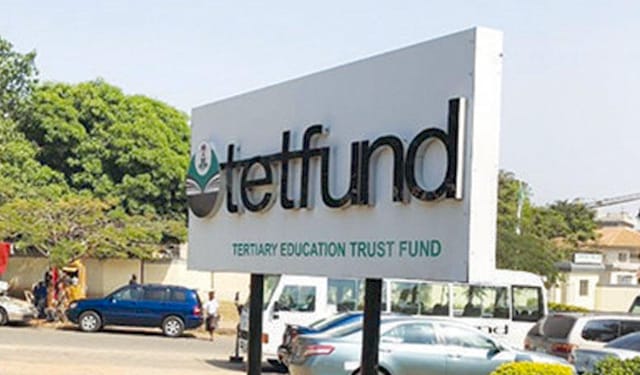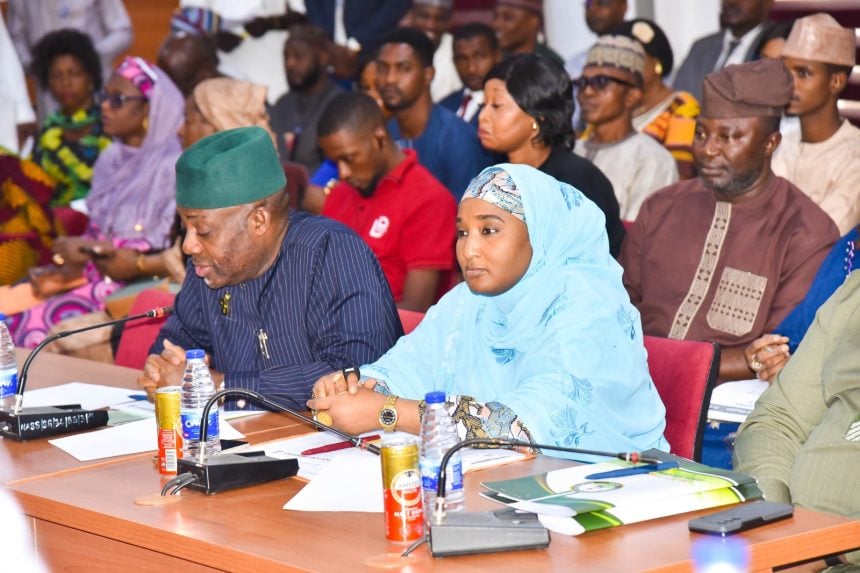In a significant stride towards strengthening Nigeria’s academic and research capacity, the Tertiary Education Trust Fund (TETFund) has announced that 4,645 lecturers from public tertiary institutions across the country benefited from its Scholarship for Academic Staff programme in 2024. This monumental achievement marks one of the largest academic empowerment efforts in the history of Nigeria’s higher education sector.
According to a recent TETFund report, the scholarships — both local and international — were designed to promote excellence in teaching, research, and innovation by supporting lecturers in pursuing postgraduate and doctoral studies. The initiative reaffirms TETFund’s commitment to improving the quality of education and fostering a globally competitive academic workforce within Nigerian universities, polytechnics, and colleges of education.
Breakdown of the Scholarships
The TETFund report provided an extensive breakdown of the 4,645 scholarships awarded under the scheme, showing a well-balanced distribution between domestic and international study opportunities for Nigerian academics.
Foreign Scholarships
Out of the total beneficiaries, 215 lecturers were sponsored to study abroad across various levels of academic advancement. The breakdown includes:
- 72 scholars for Post-Doctoral studies
- 67 scholars for Doctoral (PhD) programmes
- 27 scholars for Master’s degree programmes
- 49 scholars for specialized “Bench Work” or research-focused training
These international scholars are currently pursuing or have completed their programmes in prestigious institutions across the United Kingdom, United States, Canada, Kenya, Malaysia, Cyprus, Uganda, and India.
Local Scholarships
On the home front, 4,430 lecturers benefitted from domestic scholarships in Nigerian universities. These include:
- 2,539 lecturers undertaking PhD programmes within Nigeria
- 1,891 lecturers pursuing Master’s degree programmes
This shows a strategic shift toward developing in-country research capacity, ensuring that Nigerian institutions become hubs for world-class postgraduate training while also reducing the cost of foreign sponsorships.
Verification and Monitoring Challenges
Despite the success recorded, TETFund also highlighted the challenges encountered during the verification of scholars abroad. Out of 361 foreign-based lecturers scheduled for monitoring, only 211 were successfully verified. This shortfall has raised concerns about tracking, supervision, and accountability in managing overseas scholars.
TETFund emphasized that it is intensifying efforts to strengthen its monitoring and evaluation mechanisms, including partnerships with host universities and Nigerian embassies abroad, to ensure every sponsored scholar fulfills the academic obligations tied to their funding.
Impact on Nigerian Tertiary Education
The implications of this massive scholarship initiative are far-reaching. By investing in staff development, TETFund is directly addressing one of the most critical challenges facing the Nigerian education system — the shortage of highly qualified teaching and research personnel.
1. Strengthening Academic Quality
More lecturers with advanced degrees mean better supervision for postgraduate students, improved teaching methodologies, and a rise in the quality of research output across universities and polytechnics.
2. Building Institutional Research Capacity
With thousands of lecturers now pursuing PhD and Master’s studies locally, Nigerian universities are positioned to become research powerhouses capable of solving national and regional problems through innovation and applied research.
3. Global Exposure and Collaboration
The international component of the scholarship fosters academic partnerships and cross-border collaboration. Lecturers returning from top global universities bring back cutting-edge knowledge, modern research techniques, and new teaching methods that enrich Nigeria’s tertiary education ecosystem.
4. Retention and Motivation of Academic Staff
Such initiatives help reduce the brain drain that has long plagued the nation’s academic sector. By providing both local and foreign study opportunities, TETFund creates incentives for lecturers to remain within the Nigerian education system and contribute meaningfully to national development.
Expert Reactions and Institutional Benefits
Education experts and university stakeholders have commended TETFund for maintaining its commitment to staff training and capacity development. The programme, according to many, is instrumental in bridging the qualification gap among Nigerian lecturers.
At the Federal University of Technology Minna (FUTMINNA) and other leading institutions, the ripple effects of these scholarships are already visible in the quality of academic supervision, research collaborations, and publication output. The training of academic staff is also expected to boost the global ranking of Nigerian universities over time.
TETFund’s Ongoing Commitment to Academic Development
TETFund’s Executive Secretary reiterated that the Fund remains dedicated to sustaining its interventions in the areas of research, academic training, infrastructure development, and innovation. The scholarship programme, he noted, is only one aspect of a broader strategy to reposition Nigerian tertiary institutions for global competitiveness.
Plans are underway to expand the scholarship scheme further, introduce new research grant opportunities, and improve monitoring systems to ensure accountability and transparency in the use of funds.



